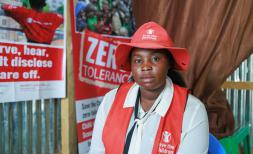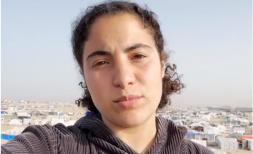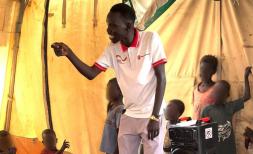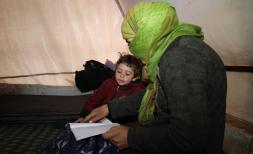“Our future is not negotiable”: Climate Activist Sohanur speaks
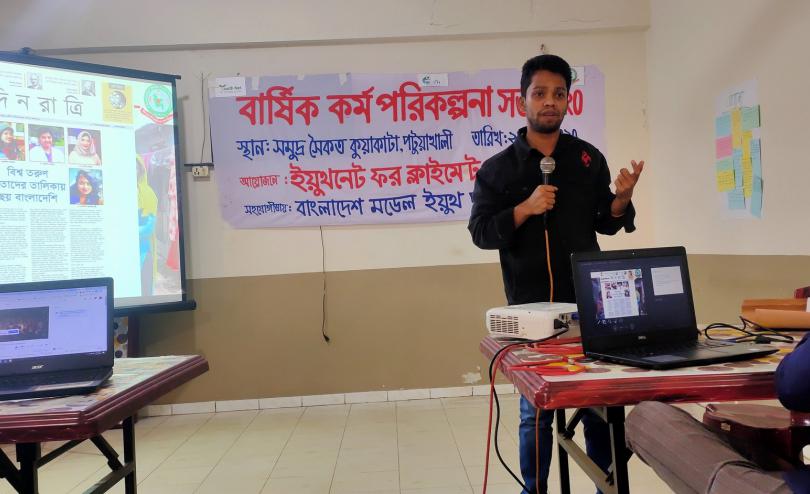
Launching a landmark year of events and decision related to climate and nature, the Climate Adaptation Summit on 25-26 January brought together world leaders, businesses, civil society leaders and organisations to inspire stronger action to help vulnerable countries and communities to adapt and build their resilience to climate crisis impacts.
We spoke to Sohanur Rahman (24 years) - a Red Alert climate activist from Bangladesh & part of the Climate Adaptation Summit Youth Newsroom.
What inspired you to engage in climate change work in Bangladesh?
It all started when I faced a super cyclone in my childhood. It was terrifying, and I realized how vulnerable we all are to climate-induced natural disasters. In Bangladesh, there is an island called Andar Char; it's incredibly susceptible to climate-linked disasters. We visited that island to document the risk to vulnerable groups and concluded that children and women suffered the worst impacts of climate change. Since then, I have been working with Bangladesh National Children Taskforce (NCTF) and served in Bangladesh Child Parliament.
What has been your experience while engaging with other children and youth on climate change?
Climate-related disasters pose the greatest threat to children and youths’ fundamental rights in different aspects of their lives and well-being. Many children get displaced as climate refugees & fall prey to various diseases, violence, exploitation and oppression. I initiated a youth group called Youth Net, which implemented different action plans for community mobilisation, advocacy, capacity-building and monitoring of disaster risk reduction and climate change adaptation. Youth Net was one of the country's first youth conference on climate change & had a lot of support from young people all over Bangladesh.
How do you see children and youths’ role in campaigning for climate change?
They have to be at the forefront –they should lead it. I want to see children and young people at the forefront of climate movements, co-creating solutions, and secured seats at the decision-making table, including the negotiation process.
Do share your reflections and thoughts on how you think the discussions went?
I was delighted to be a regional spokesperson for Red Alert climate campaign. It was an excellent opportunity for views from Bangladesh to be brought to a global level. Various initiatives ensured this – like Anchoring Event on Youth Leadership & Youth Newsroom with 18 climate journalists from 14 countries helped take our voices ahead.
Tell us about the drafting of the call to action called "Adapt for our Future". How was this facilitated to include young people's voices?
With a lot of debate! Young people from over 115 countries presented the "Adapt for our Future" call to action to leaders on Friday. It was delivered to former Secretary-General Ban Ki-moon & co-designed by Global Centre on Adaptation's Youth Adaptation Network through 15 global and regional consultations. The diversity in the young participants served as a reminder that the fight for climate action knows no borders, race, gender, or religion. It impacts all of us. We called for a "Decade of Action" to prepare younger generations to transition towards green and climate-resilient development. In Ban Ki Moon's words, 'Young people have spoken, we must listen, and together we must act.' Canada PM Justin Trudeau mentioned, "To combat climate change at home, we must fight it everywhere. Young people understand that we must restore nature's balance and preserve the planet for future generations."
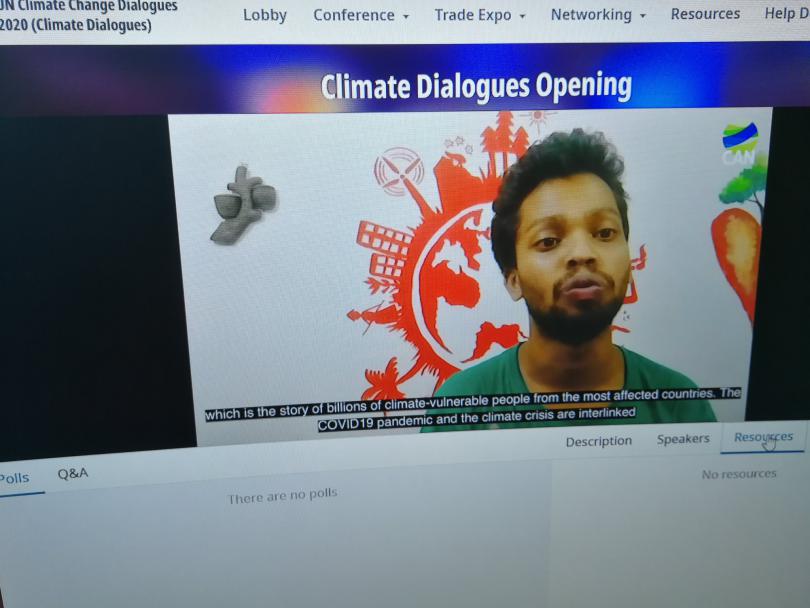
What would be YOUR top 3 messages for governments/leaders?
- Invest in young people and their initiatives and promote youth-driven innovative solutions.
- Include young people at the decision-making table and consult them before the climate plans & policy development
- Take initiatives to build young people as climate champions. Prime Minister of Bangladesh should appoint a youth adviser or Ambassador on climate action
What were good outcomes and results from the Climate adaptation Summit?
The summit coincides with the return of the U.S. to the Paris 2015 Climate Agreement. President Joe Biden's climate envoy, John Kerry, assured world leaders in his first public appearance on the international stage that international climate action is a top priority for the new administration, stating "we are proud to be back." Many world leaders speaking at the conference, such as France's President Emmanuel Macron, the U.K.'s Prime Minister Boris Johnson and Canada's Prime Minister Justin Trudeau, have also pleaded for more adaptation to climate change. China's Vice-Premier Han Zheng called on the international community to redouble their national adaptation efforts and implement adaptation commitments in the Paris Agreement.
Were you happy with how the summit took on children and youths' demands on climate adaptation – what more needs to be done?
I was delighted to be engaged with Red Alert, a much-needed initiative to engage young people at the grassroots. Adaptation to climate change is too slow – so governments should urgently work on community-based adaptation and resilience-building to helping most affected countries like Bangladesh with promised adaptation funds. Our future is not negotiable & Climate adaptation is unworkable without mitigation.
Young climate activists have warned us that humanity was abusing nature beyond its limits. Now we’re paying the price for ignoring their warnings. But we want to say – ‘We hear you’. That’s why Save the Children is supporting a new campaign by young people, Red Alert on Climate in Asia-Pacific to make sure their concerns are heard loud and clear.
